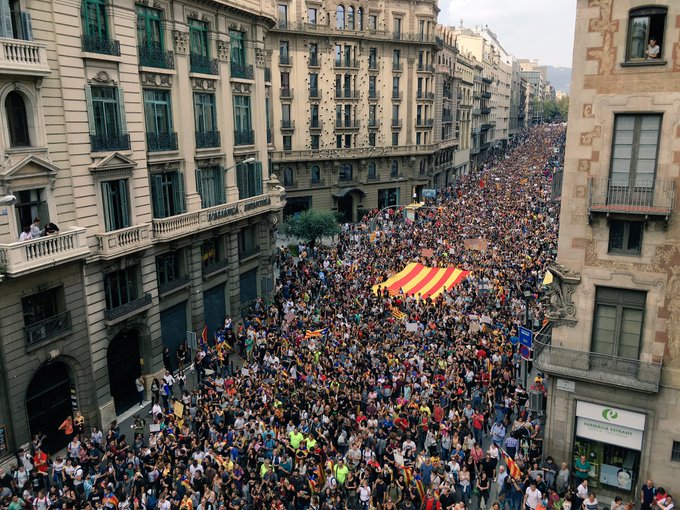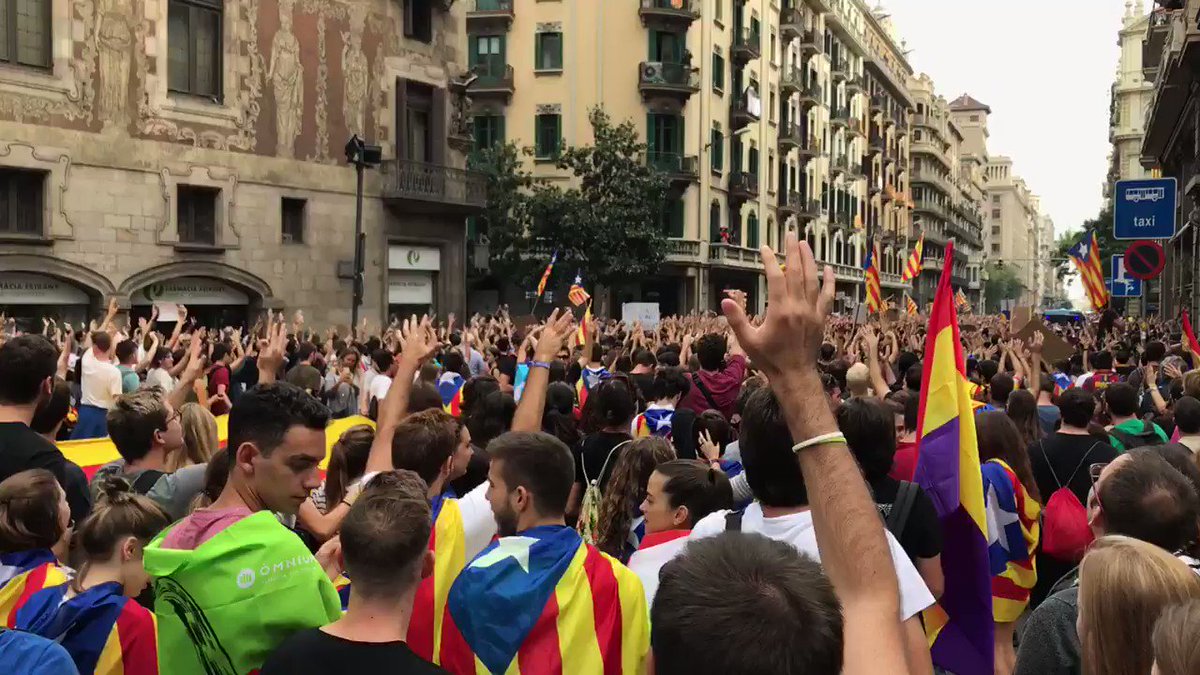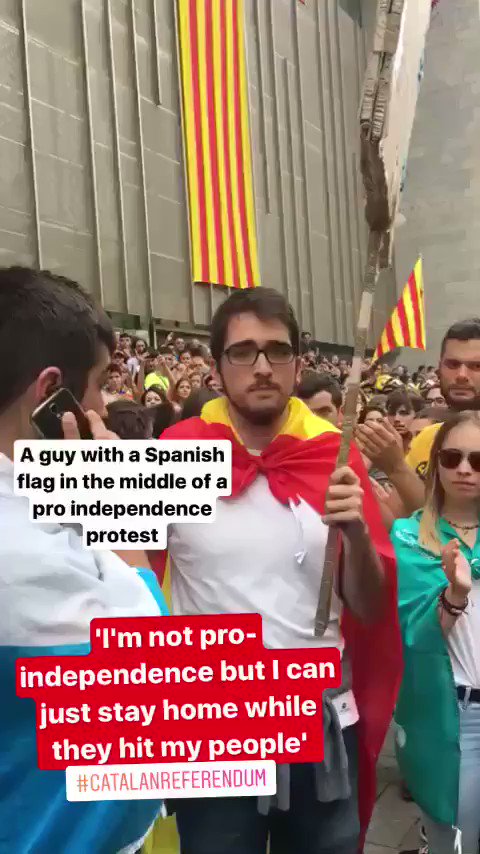
Businesses ground to a halt in Barcelona and across Catalonia on October 3, as a general strike was observed and protesters poured into the streets. Two days after the Spanish government authorized the use of force to disrupt a referendum on independence from Spain, Catalans for and against secession remain livid.
The small village of Caldes de Montbui, Barcelona #VagaGeneral3O
Milers de manifestants a la plaça Major i fins el c/Verdaguer de Vic. Molt seguiment de l’aturada a la comarca d’#Osona#AturadaTV3 @324cat
Mostrem les places de Catalunya... Manresa aqueTa tarda... #aturadaRac1
Spanish police officers, who injured nearly 900 voters as they attempted to cast ballots on Sunday, were a focus for much of the anger, as fresh images of the attacks continued to circulate. Rage at police actions intensified as video was broadcast showing Spanish officers in a hotel outside Barcelona applauding their colleagues and chanting “Viva España” late Monday night.
The Spanish officers were protected, however, by local Catalan police and demonstrators determined to retain the moral high ground through nonviolence.
Barcelona’s mayor, Ada Colau, tweeted that 300,000 people marched in a protest that took over two hours to pass in front of local headquarters of the national police force, where demonstrators slowed to whistle, jeer, and chant, but there were no reports of violence.
Ballots tossed in the air and Antifa flags waving, 2 hours after front of protest march passed by Spanish police HQ in Barcelona. #3Oct
Among the chants from the crowd filing down Via Laietana were “Fora les forces d’ocupació” (“Withdraw the forces of occupation”) and “La vergonya d’Europa” (“The disgrace of Europe”), which was sung to the tune of “Seven Nation Army” by the White Stripes.
1 hour 20 minutes after front of protest march passed Spanish police HQ in Barcelona, street is packed and no end in sight to marchers #3Oct
Just before the main march had reached the police building, a young man on a bicycle tossed a beer can over the line of Catalan officers outside and was quickly surrounded by other protesters, who chanted “Som gent de pau” (“We are people of peace”) and pressed him to leave the area.
In what could have been a lesson in community policing for the Spanish police officers in riot gear near the back of the building, an officer from the autonomous Catalan force, known as the Mossos, also scolded the young man but did not lay a finger on him.
Later, the Mossos defused an even more volatile situation at the rear of the police building, where a small group of young protesters had gathered to jeer at Spanish officers in riot gear, blocking their exit.
Spanish National Police & Guardia Civil are now forces of occupation in Catalunya. #3Oct
After a short time, two Catalan police vans moved into the narrow alley behind the station, and officers from what the protesters called “our police” convinced most of them to move on.
Elsewhere in Barcelona, protesters silently held their hands in the air outside a central government office, demonstrating their intention to remain peaceful.
Among the crowds of pro-independence citizens of Catalonia on Tuesday, there were also some who openly opposed secession from Spain, but wanted to voice their disgust at the use of force to block the vote.
Apart from anger at the Spanish police, there was also widespread scorn for the role played by Spain’s newspaper and television journalists, who stand accused by protesters of politically motivated, “manipulative” reporting that demonizes Catalan separatists as greedy or violent.
In person, however, the peaceful, even joyous nature of this democratic uprising was hard to miss. A spontaneous gathering of young protesters outside Barcelona’s city hall on Tuesday erupted at times into something more like a party.
Still, fears that the Spanish government might take further provocative steps to stoke tensions were amplified late on Tuesday when the government chose to have the King of Spain, Felipe VI, deliver a strident televised address, in which he blamed Catalan separatists for provoking the crisis and failed to even mention the police violence.
“If people thought that he was going to call for dialogue, it didn’t happen,” Borja Echevarría, a Spanish journalist who is now the digital editor-in-chief of Univision News in Miami, told The Intercept. “He backed totally [Prime Minister Mariano] Rajoy’s position. He condemned Catalan leaders. He didn’t mention what happened on Sunday, the violence.”
The king “was tough and spoke to those who live in Cataluña or Catalans who feel Spanish,” Echevarría added. “He was just speaking to a part of the Catalan population and to Catalan politicians, blaming them. But what happens to those moderates in Cataluña that are fed up of Spanish politicians, and they were not separatists until not so long ago?”
Ramón Lobo, a veteran war correspondent in Madrid, called the king’s remarks “disappointing” and “very rough,” in an interview shortly after the broadcast.
There was no mention at all of dialogue, Lobo pointed out, as if the government was already preparing to invoke Article 155 of the Spanish Constitution, which would permit Spain to suspend the autonomous Catalan government and rule the region directly from Madrid. “Big mistake,” Lobo concluded.
Barcelona’s mayor agreed, calling the speech “irresponsible and unworthy of a head of state,” since it offered no solution, made no mention of the wounded and included no appeal for dialogue.
Pablo Iglesias, the head of the Podemos party, also denounced the speech, telling the unelected king that, as the head of a parliamentary group representing 5 million Spaniards, he did not spoke for them.
The king’s speech was quickly followed by what the Catalans call a cassolada, a form of protest in which dissent is expressed by making a racket, banging on casseroles, pots, and pans.
The repression of Sunday’s vote in Catalonia set Spain back 40 years, Albano Dante, a member of the Catalan parliament, observed on Twitter. This speech from the king, he added, set it back another 300 years.
Adding to the sense of crisis, the BBC reported that Catalan President Carles Puigdemont saidin an interview recorded earlier on Tuesday that his government would declare independence within days.
[Abridged from The Intercept. Green Left Weekly's European correspondent Dick Nichols, based in Catalonia, will have eyewitness coverage and analysis in the coming days. You can read his recent articles on the Catalan struggle here.]
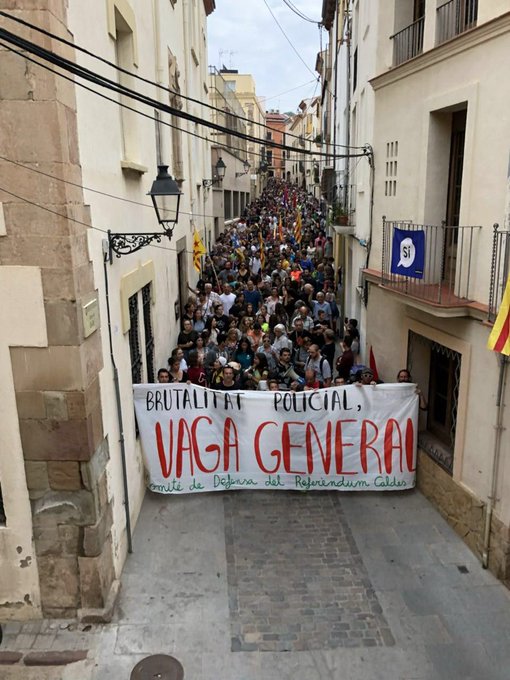
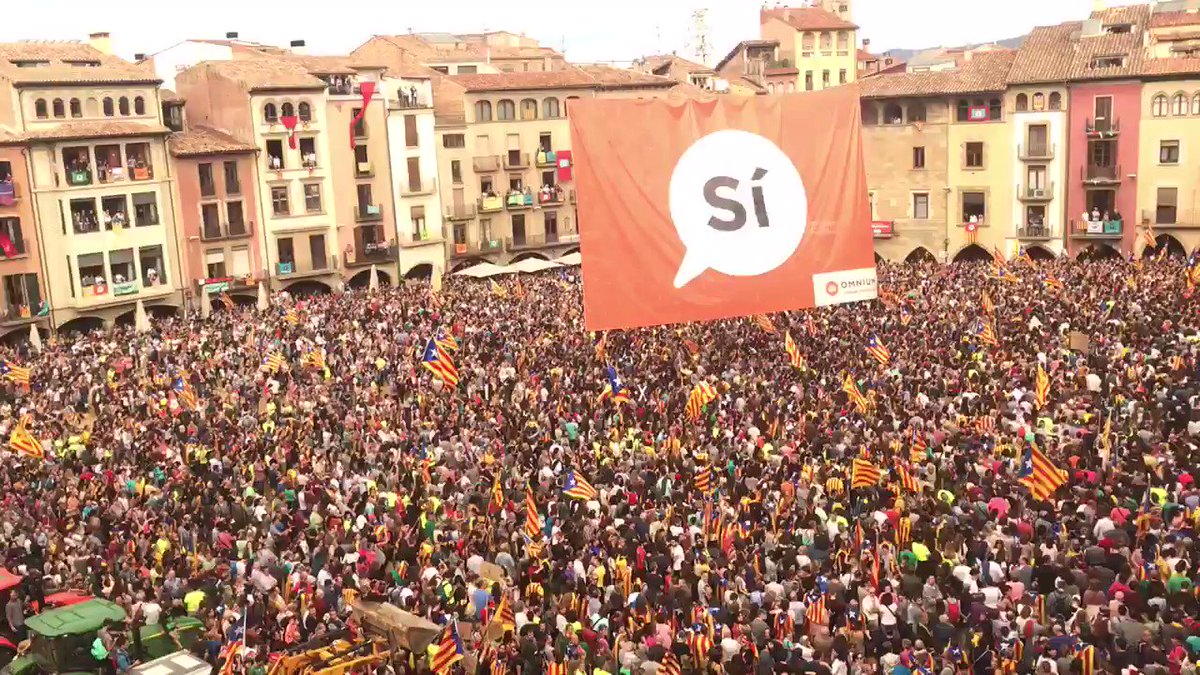
 Ferran Vila @fvilacabanas
Ferran Vila @fvilacabanas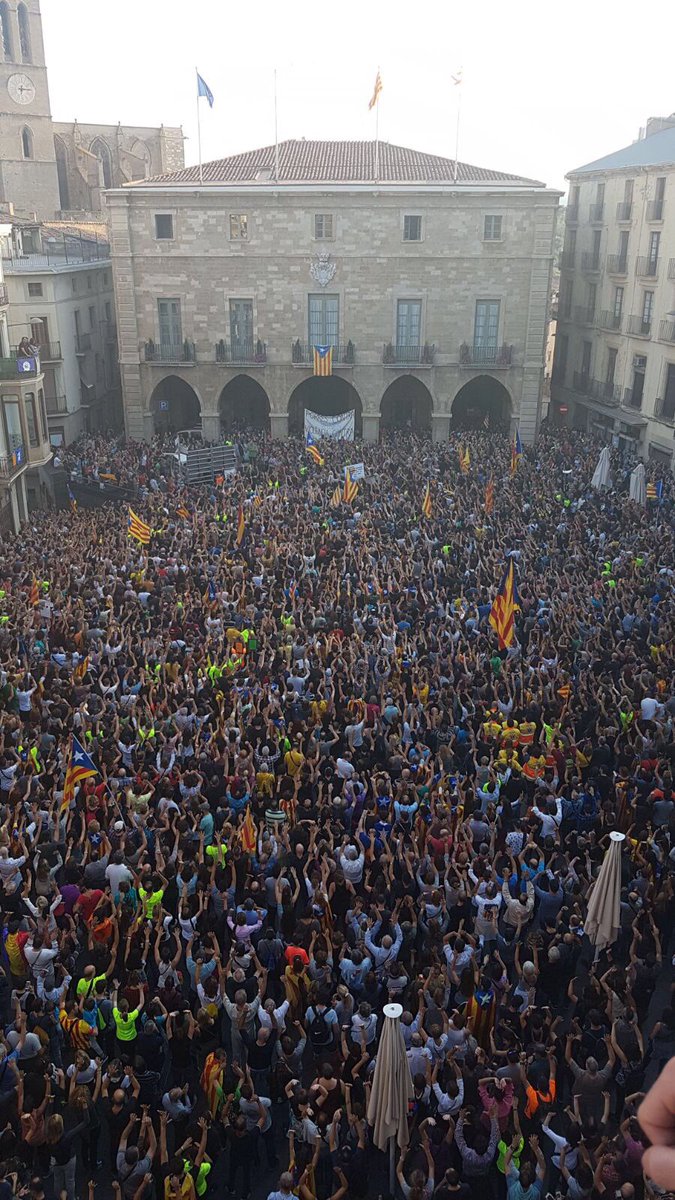
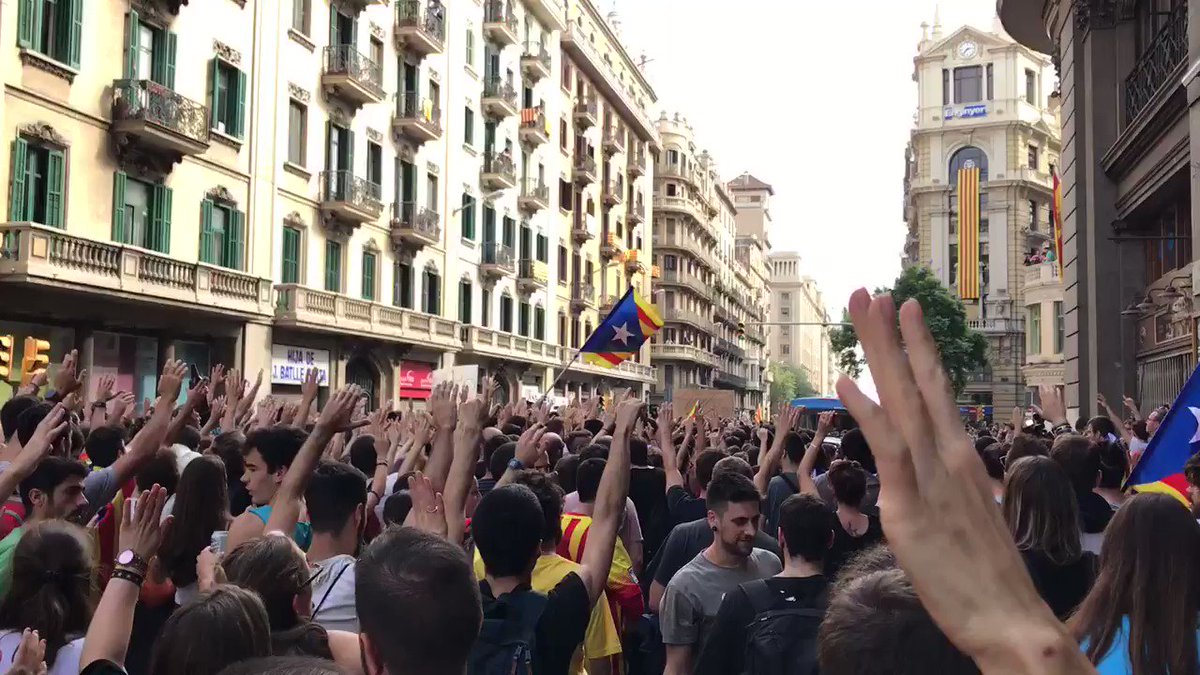
 Robert Mackey
Robert Mackey 